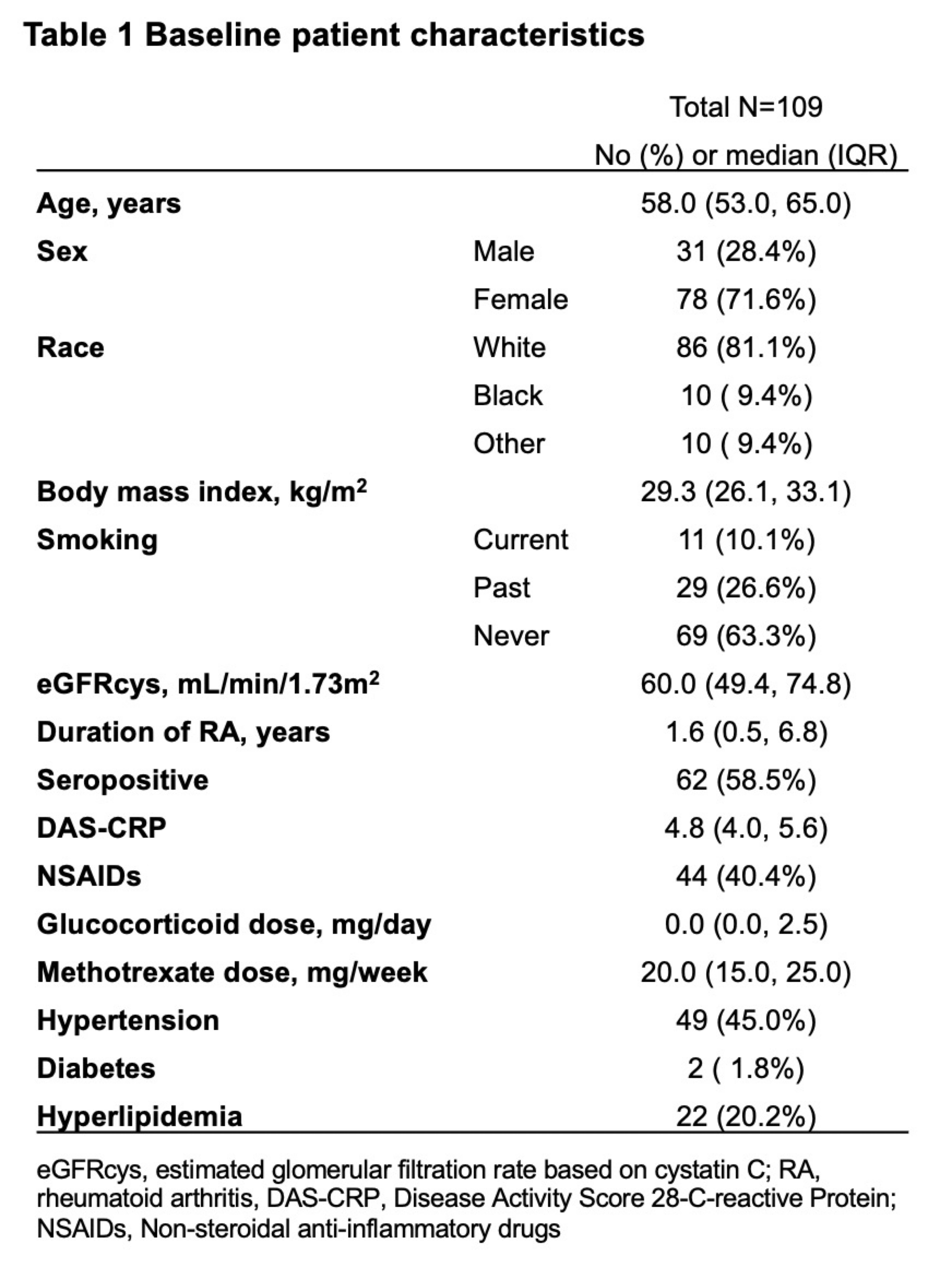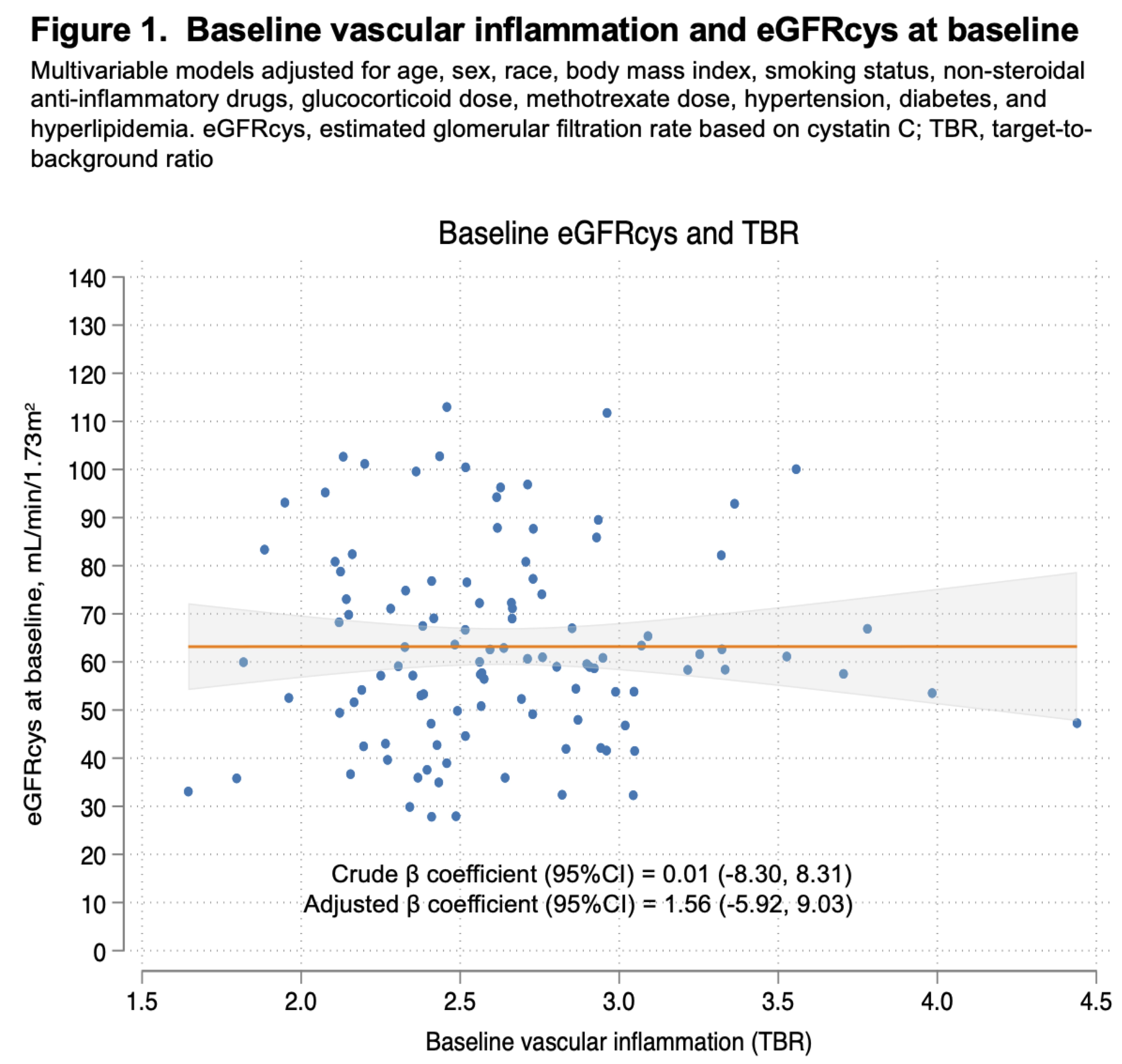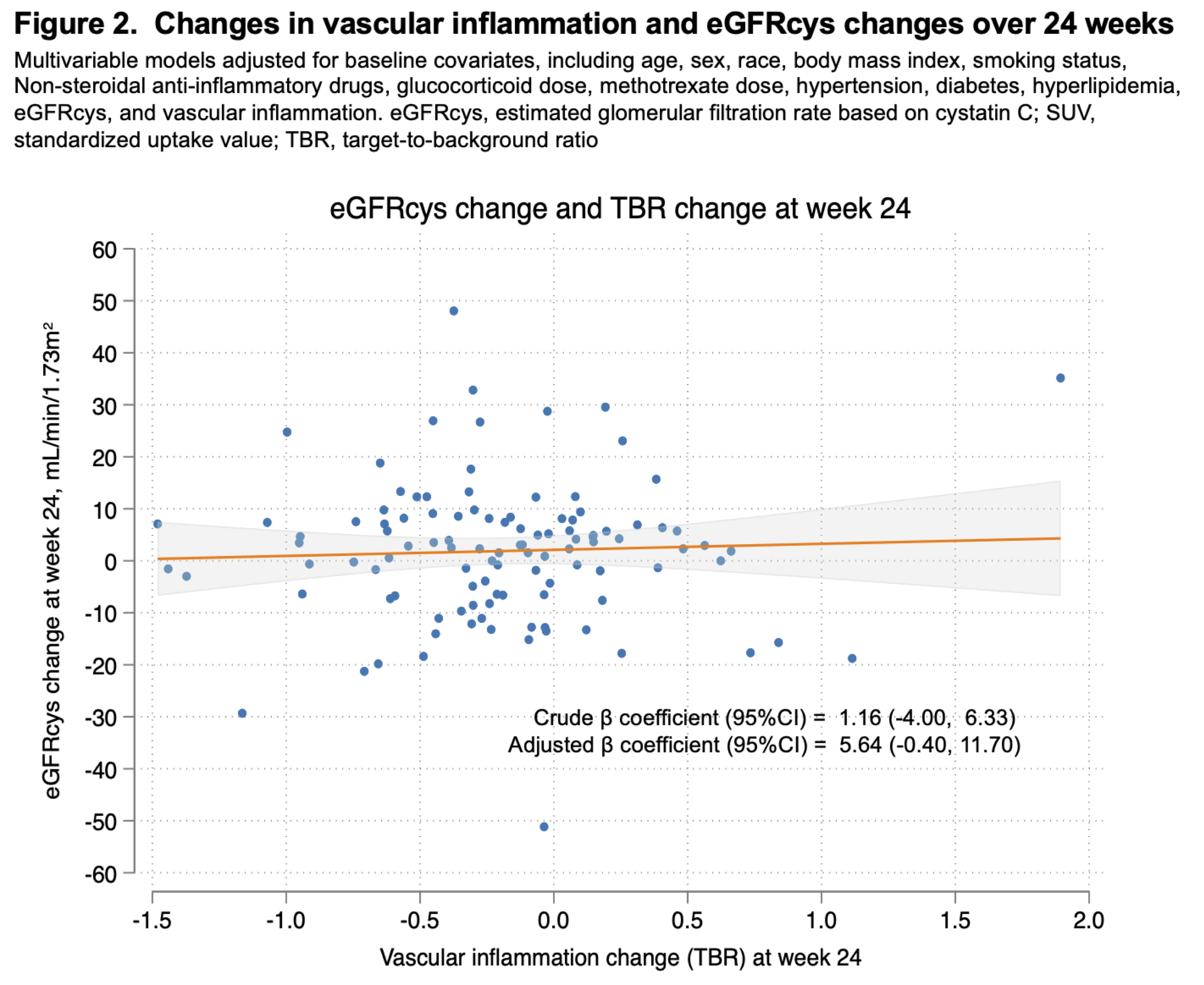Session Information
Session Type: Poster Session B
Session Time: 10:30AM-12:30PM
Background/Purpose: Kidney dysfunction is a common complication in patients with rheumatoid arthritis (RA). More severe disease activity is associated with a larger decline in the estimated glomerular filtration rate (eGFR). We hypothesized that systemic vascular inflammation in RA may underpin kidney dysfunction, and reducing vascular inflammation may improve kidney function.
Methods: We performed a secondary analysis of the TARGET trial. The TARGET trial examined the effect of tumor necrosis factor inhibitors vs triple therapy on vascular inflammation. Study participants underwent fluorodeoxyglucose-positron emission tomography/computed tomography (FDG-PET/CT) at baseline and week 24. Vascular inflammation was assessed with the target-to-background ratio (TBR) of the most diseased segment in the aorta or carotid arteries. This secondary study included participants whose FDG-PET/CT results and cystatin C were available at baseline and week 24. Multivariable linear regression evaluated the association between baseline TBR and baseline eGFR based on cystatin C (eGFRcys). The association between TBR change and eGFRcys change over 24 weeks was also assessed. In multivariable analyses, we adjusted for baseline covariates, including age, sex, race, body mass index, smoking status, non-steroidal anti-inflammatory drugs, glucocorticoid dose, methotrexate dose, hypertension, diabetes, and hyperlipidemia. In the eGFR change analysis, we additionally adjusted for baseline TBR and eGFRcys.
Results: A total of 109 patients were included. At baseline, median age was 58 years, 71% were female, median eGFRcys was 60.0 mL/min/1.73m2, and median DAS-CRP was 4.8 (Table 1). TBR at baseline was not significantly associated with baseline eGFRcys (adjusted β coefficient [95%CI] of TBR: 1.56 [-5.92, 9.03]) (Figure 1). During the follow-up, the mean TBR decreased from 2.63 to 2.43. These changes in vascular inflammation were not associated with eGFRcys changes (adjusted β coefficient [95%CI] of TBR change: 5.64 [-0.40, 11.70]) (Figure 2).
Conclusion: This secondary analysis of the TARGET trial did not find a significant relationship between baseline aortic or carotid vascular inflammation and eGFRcys. In the 6-month follow-up, vascular inflammation decrease was not significantly associated with eGFRcys improvement. These findings should be verified in a larger population with longer follow-up.
To cite this abstract in AMA style:
Fukui S, Tawakol A, Winkelmayer W, Santacroce L, Giles J, Liao K, Bathon J, Solomon D. Association Between Vascular Inflammation and Kidney Function in Patients with Rheumatoid Arthritis: Secondary Analysis of TARGET Trial [abstract]. Arthritis Rheumatol. 2024; 76 (suppl 9). https://acrabstracts.org/abstract/association-between-vascular-inflammation-and-kidney-function-in-patients-with-rheumatoid-arthritis-secondary-analysis-of-target-trial/. Accessed .« Back to ACR Convergence 2024
ACR Meeting Abstracts - https://acrabstracts.org/abstract/association-between-vascular-inflammation-and-kidney-function-in-patients-with-rheumatoid-arthritis-secondary-analysis-of-target-trial/



